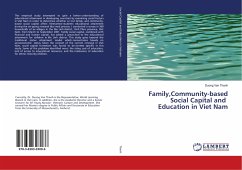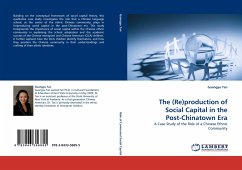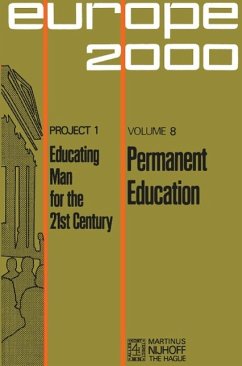
Family,Community-based Social Capital and Education in Viet Nam
Versandkostenfrei!
Versandfertig in 6-10 Tagen
52,99 €
inkl. MwSt.

PAYBACK Punkte
26 °P sammeln!
This empirical study attempted to gain a better understanding of educational attainment in developing countries by examining social factors in Viet Nam in order to determine whether or not family- and community-based social capital affect Vietnamese students' educational attainment during the on-going renewal (doi moi) process. I conducted a survey in 360 households of six villages in the Me Linh district, Vinh Phuc province, Viet Nam, from March to September 2001. Family social capital, combined with financial and human capital, has added a great deal to the educational attainment for childre...
This empirical study attempted to gain a better understanding of educational attainment in developing countries by examining social factors in Viet Nam in order to determine whether or not family- and community-based social capital affect Vietnamese students' educational attainment during the on-going renewal (doi moi) process. I conducted a survey in 360 households of six villages in the Me Linh district, Vinh Phuc province, Viet Nam, from March to September 2001. Family social capital, combined with financial and human capital, has added a great deal to the educational attainment for children in Me Linh district. This study goes beyond the traditional status attainment model which concentrates heavily on socioeconomic status. Given the context of the current renewal in Viet Nam, social capital formation was found to be context specific in this study. Some of the problems identified were: the rising cost of education, lack of access to educational resources, and the irrelevance of education for ethnic minority children.












